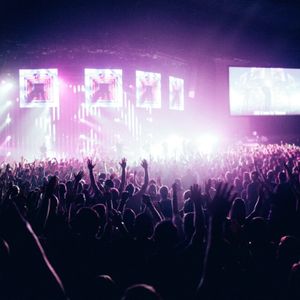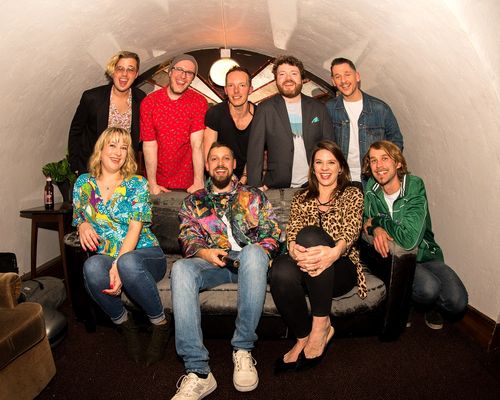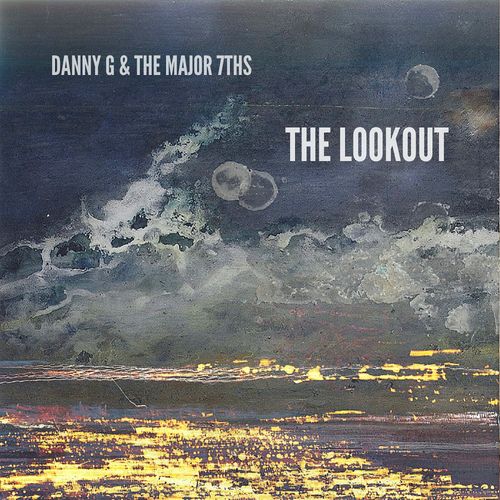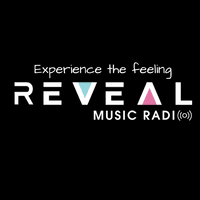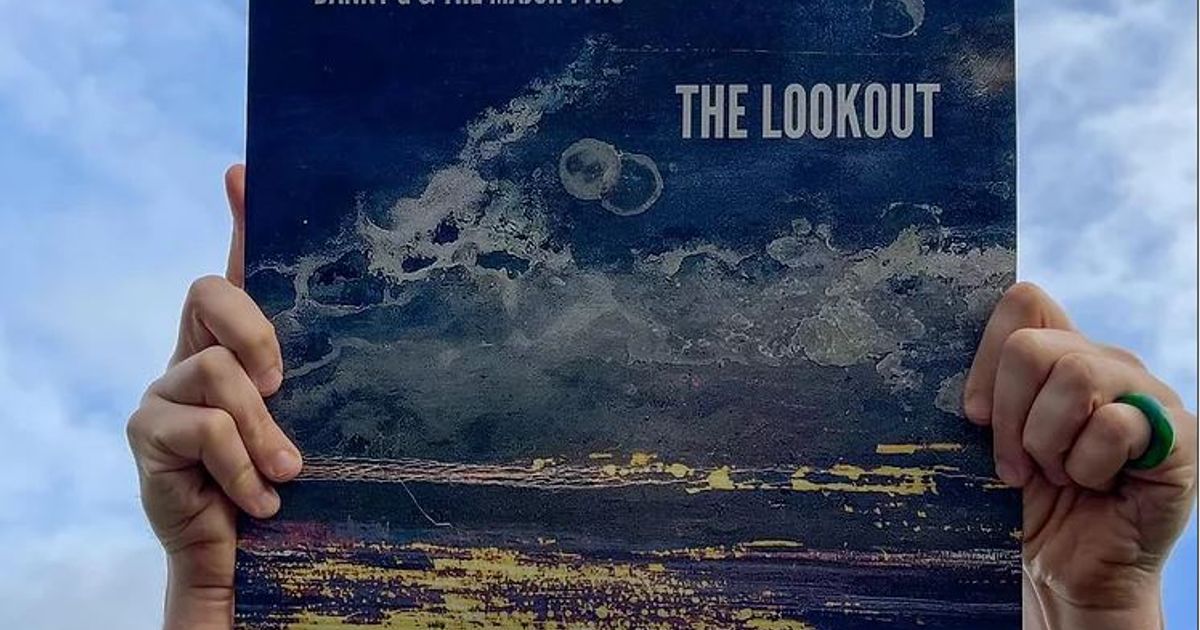
DANNY G AND THE MAJOR 7THS
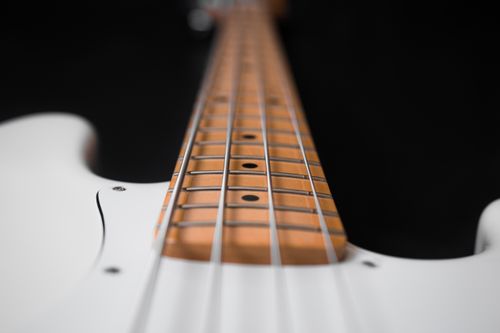
DANNY G AND THE MAJOR 7THS
Daniel Groenland, known as the father of Irish neo-soul, has been a music appreciator since early age. In big part it is thanks to being raised in a presence of a singer and songwriter, his father. He started a band, Mob Fandango, in his college years and matured with the second band The Major 7ths. They have recently released their second album The Lookout and it’s full of feel-good vibes, just like Danny himself. Although he’s a busy man, with raising two daughters and working two jobs, he found some spare time for an interview.
You said that you work from home, what is your day job?
I actually work for Tick tock. I started off just by watching videos and now I advise other people on how to moderate theirs.
10 years ago, you were in a bend Mob Fandango and you were the 1st winners of Rising Stars competition, with the song Ghetto Life. What kind of impact did that have on the band?
It was amazing at the time. It was 2012, so pretty much exactly 10 years ago. And we were all in our 20s, making music. But the thing was, we hadn't received any sort of recognition like that before. That was the first time that it happened and it was a huge deal for us. I think we didn’t realize it at the time. We just went with the flow.
It was with the Mob Fandango that your passion for neo-soul was born?
We all met in college, studying classical music. We were all hanging out together and realized we liked funk music. One of the guys was into hip hop, some into funk, jazz, rock. So, we all just kind of decided – we'll make a band together. But I was really into Marvin Gaye. I was really obsessed with soul music. But like American soul music from the 60s.
I suppose you know you are being called the father of Irish neo-soul?
That's on my bio, yeah. One of the founding fathers. But because I don't think a lot of people were doing that ten years ago. There was a band that I really looked up to called Republic of Loose. They were doing this funk, R&B kind of stuff. But apart from that, nobody in Ireland was making that kind of music. It was mostly rock. But in the last five years it changed massively. I feel like the Irish people are ready for it.
How did the change in the rhythm happened? After MF, with The Major 7ths, you introduced something new to the sound. Something light, something with a carefree beat. Did you stir things in that direction or was it the band dynamic?
Yeah, that's a very good point. I'm glad you noticed that. MF was kind of a more traditional funk group. Over the years I started listening to neo-soul. Specifically, D'Angelo, Erykah Badu and these kind of artists from the early 2000s. It was the same kind of music, but the beats had changed so that it was more kind of a hip hop beat. It grooved more. It sounds more modern but at the same time it’s soul music. So that's kind of what I was trying to do. And in my first album, I don't think I succeeded in doing that because we recorded everything at home. I wasn't using a juicer or had any budgets, so I just did everything myself. And my band, of course. But on my second album I made sure to get a good producer in and someone I knew. Actually, the bass player from MF. He's been my friend the entire time and he's mixing now.
Your 2nd album The Lookout was inspired by a trip to Venezuela. Are you planning to focus more on injustices of the world, as well as the climate change, in the future? Use the feel-good vibes to convey the message?
Yeah, 100%. That's exactly the path I'm going down. Exactly. For the first album, I was kind of about me and my relationships and I was a little bit self-obsessed, if I'm being honest. Now I'm happy, now I'm sad, now we broke up, now we're back together. Yeah, but it's important to get that out of your system.
Do you feel that that is part of the process of growing as a musician? To first focus on your personal happenings and heartbreaks and then the ones of the world?
That was definitely my growth. The thing is, you can only write about what you care about right now. And I know that my favorite singer, Marvin Gaye, he did What's going on in 1971. But a few years later, when he got divorced, he had this big divorce album Here, My Dear, which is loads of bitter love songs. So that was kind of the opposite direction. I always wanted to do music that felt important. But you don't want to preach to people. You don't want to tell people what to do and how to live. It's kind of like walking a fine line between saying what you want to say and making it something that people want to listen to, as well. I think What's going on works because it's almost a love song to the world.
Your father is a Dutch singer and songwriter. How would you say that he influenced your love of music? And do you feel your kids are influenced by yours?
I only realized when I grew up that me and my brothers were very lucky. We had somebody singing songs to us at home. And not just children’s songs, but he was singing songs that he had written. When I grew up and I'd go to my friend’s house, they weren't doing that. I kind of realized - OK, this is different. So, I'm making a conscious decision to show my children that they can do it too. I have two girls, they’re 3 and 6, and they're already making up their own songs.
Have they already started choosing instruments?
Not yet, I don't want to push that too soon. I took piano lessons when I was seven and I didn't like it. I really regret never learning, but I picked up the guitar when I was a teenager. I wanted to write my own songs and that seemed like the easiest thing to do. And that was definitely influenced by my father. Actually, my whole songwriting style was influenced by him. He’s got some love songs, some songs about peace and the environment, as well. I would say he's influenced me more than I realize, yeah.
You agree that young people should have free musical education available, even if it means that musicians and teachers would have to give up their time for free to do it?
I think it should be free for everybody, but it should be paid for by the government. Musicians shouldn’t be asked to give up their time because musicians are poor already [laughs]. Like with me. I sing in a wedding band, as well, and I have this second job. And I don’t make any money from my original music, I know what it's like. But in Ireland, even though we're famous for music, it seems like the government doesn't really contribute. They could easily subsidize this, you know.
How did you educate yourself in music, instruments and singing?
Well, you’ve got a good band.
I learned Irish music, so I played tin whistle and I learned the flute when I grew up and my hands were big enough to hold it. I was learning by ear. And then I didn't really know what to do in college, so I did this classical music course. And to be honest, it wasn't really for me because I've never been so passionate about classical music, but it still helped me to understand how to write music and how to arrange instrumentation. And I met my future bandmates there, as well. So that was kind of a roundabout way of learning. I don't consider myself very accomplished. It takes me a long time to write out parts for brass or parts for strings. I never really took my education to the next level. I went to the point where I could write my own songs and that’s where I stopped.
Yeah, exactly. That was the other thing. Surround yourself with good musicians.
Where do you enjoy performing the most?
We did a gig recently in The Sugar Club to launch my album, finally. I brought the album out during the pandemic and all the venues were closed. But I love that venue. It’s big enough so you can have a crowd but small enough so it’s still intimate. And I've been to see so many gigs there from jazz artists that I love. It has a special vibe, special atmosphere. It used to be a cinema. I like smaller venues. You can see people’s faces and reactions. There is more of a connection between you and the audience.
When you create your music and think about your audience - In what kind of setting do you like to imagine your fans listening to your music?
That's a good question. The way I like to think about it is - what do I like. I collect records. So, have a glass of wine, put on a record and I want people to relax. I want to make people feel like they don’t need to work hard to understand the music. I don’t want it to be a background music, either. But the most important thing is if I can get someone to nod their head, while they're listening. That's the most important. Lyrics and meaning, that will come afterwards. But I think the most important is to get the people’s heads nodding.
I read that during lockdown you experimented with Indian cuisine, specifically saag paneer. Did you make the cheese yourself, as well?
Oh my God, you've done your research. I didn't make it myself. There are a few Indian, Pakistani shops on Parnell Street and I just got it there because I don't have time to do this. But actually, I was a vegetarian at the time and then afterwards I became fully vegan. So, I stopped making saag paneer. Although, I think you can replace it with tofu. They have another dish called saag aloo, with potato instead of cheese, but it's a bit spicier.
Which is your favorite cuisine when dining out and which one do you like cooking the most?
My favorite is Indian. Especially when I'm dining out because they know how to do it properly. And if you’re with a small group you can get like six different things and share a little bit of each, which is the best. And at home I've been experimenting a lot recently with different kind of vegan things and with the tofu and edamame beans. My wife actually eats meat and we kind of have arguments when we're trying to order food. A lot of the time we end up just compromising. So that's what marriage is. It's all about compromising. She tried it but for her body shape she needs to get a lot of protein in. My problem was that I was writing these songs about the environment and what we can do to make the world a better place. And I realize that I'm still eating fish, and I'm still eating animal products and I kind of felt a bit hypocritical. I had to just give it all up, just for myself.
Are you a movie fan? Which movie has the best soundtrack according to your liking?
I love them. I love sci-fi movies. But actually, in terms of soundtracks, the one that stuck with me the most was the one from There will be blood. It's a film with Daniel Day Lewis, where he’s discovering oil and it's really kind of a dark movie. The guy from Radiohead wrote the music for it and it's really kind of creepy. There's a lot of doing just one note on the string, sliding up and down. It's great, it's crazy. But actually, I just watched something called Station 11. It's a new series and it’s set 20 years after a pandemic. It used to be a book and the soundtrack is so beautiful. Very simple acoustic guitar, think there’s some banjo even, which is not an instrument that I usually associated with beautiful music. It’s simple melodies and suits the story perfectly.
Did you ever imagine yourself composing music for TV or movies?
You know what, I'd love to do that more and more. It's something I’ve studied a little bit in college. But talking about money, it's probably the only way that musicians can make money these days. Or even for a computer game. But it's cool because the story is already there and there’s no lyrics. You are just composing to a feeling which is a really interesting way of doing it. I'd love to try it, I don't know if I'd be any good, but I'd love to try it.
If you could go 10 or 20 years back and give yourself just one crucial advice about music or life, what would it be?
I would tell myself “Don't care what anybody thinks”. To trust myself and don't be scared, just try. When I was putting my band together the first time, I was scared of them saying no. I didn’t ask some of them for like a year. Because “this guy prefers jazz so he’s not going to want to play this kind of music” and I was putting these things in my head that weren’t true at all. So sometimes we can be our own worst enemy. And another thing I would tell myself - making the thing is already a success. You don't need amazing reviews. You don't need your place on the magazine. All of these are just bonuses but they don't really mean anything. If you've done your work and you're happy with it, that's already a success. It took me a long time to realize that, as well.
